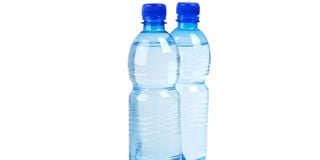Prime
What’s inside mineral water?

It is very important for our health that we, at least, drink eight glasses of water a day. But not all water is as beneficial as mineral water/spring natural mineral water. And that is because it contains minerals like sodium, potassium and calcium and others from the soil. Potassium and sodium are essential in maintaining the balance of the internal state of the body, maintaining blood pressure and body temperature while calcium helps in the development of bones and body tissues.
The difference mineral water has from the drinking water we boil at home is its purity because it does not undergo treatment. “It is free from impurities, it comes from the rock in its original pure form and therefore you don’t need to boil it,” says Peter Rukundo a nutritionist with Action for Nutrition Uganda.
Speaking of the health benefits, “like any other water, mineral water helps the body’s enzymes, hormones and the kidney,” Rukundo says. And most importantly the minerals within it help to transport oxygen through blood. Water in general helps the digestion system, “It is good for effective detoxification in the body system,” Rukundo says.
It also helps to transport blood throughout the body. “Blood itself without water, can easily clot. The other thing is that when waste material wants to get out of the body, the way for it to come out is through water.” According to him, one needs to take at least two to three litres of water a day.
The water we take at home which we usually fetch from the taps is also good if boiled. But the problem with it is that, it is overly treated by the National Water and Sewerage Corporation, and it contains a lot of chlorine which in excess becomes toxic thereby becoming an impurity in the body. “So it is not pure because it is heavily polluted compared to water that comes from the springs and that is why it requires thorough boiling,” says Rukundo.
Mineral water can last for many months as long as it is airtight. “It can even go for one year or even beyond depending on the type of packaging and the material and technology used in sealing the water bottle,” he says.
Helen Wanzala the Certification Officer Uganda National Bureau of Standards elaborates saying mineral water’s ability to stay long on the shelf depends on the stability tests which are carried out before it is brought onto the market. What happens is that, the bottling company keeps samples for about three months on which it does studies, and depending on the stability of the components within the sample the duration of expiration is then determined.
She stresses that companies are not supposed to add any artificial elements in the water, “They are supposed to pack it the way they have mined it,” she says before adding that natural mineral water picks its minerals as it goes through the hydrological cycle (the system of storage of water between the earth and the atmosphere).
However not all bottled water is mineral water, some of it is simply drinking water and it must be labelled that way on the bottle. She emphasises also that putting expiry dates on bottled water is mandatory.
And for bottling companies to be certified, there are a couple of stages which they must go through. UNBS carries out the surveillance audit, and when the company is found compliant with the requirements then it is pushed to the Evaluation Committee where it is certified. After a company has been certified, UNBS regularly visits the location of the company both where the water is drawn and where the water is packaged. “We supervise for public health measures and we also look at what was declared in terms of quantity,” she says. According to her, today all mineral water bottling companies are certified.
Though it is important for us to drink mineral water, there are possibilities for it to not be safe. “Some of it may have high levels of calcium, iodine, chlorine or other minerals and this can increase one’s blood pressure,” says Rukundo who says that to minimise such cases, mineral water companies take the water through a safety process known as ionisation, whereby water goes through radioactive waves to detect any sorts of impurities.
While water is very important and beneficial to our health, mineral water is more advantageous as it is devoid of impurities and contains minerals important to our body.
Get more information about drinking for health at the Full Woman Health Camp on February 5, 2011 at the Kampala Serena
Hotel




